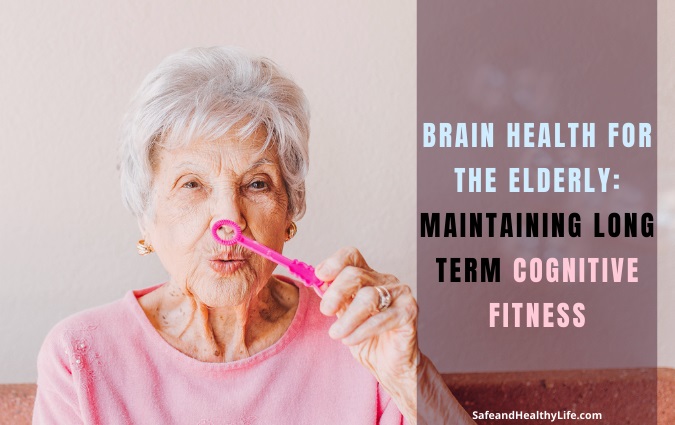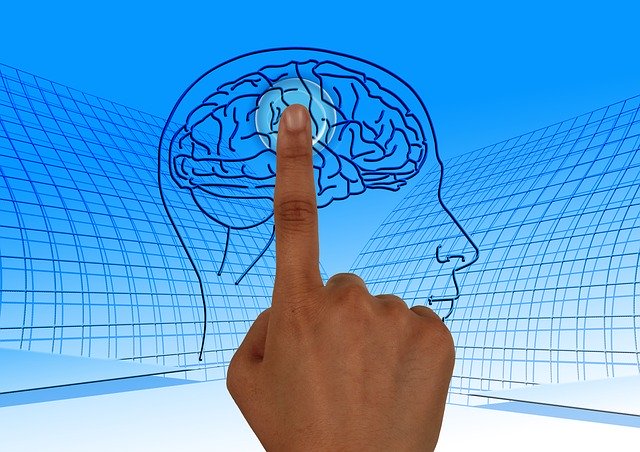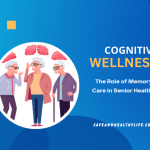
Cognitive health is the ability to think, learn, and remember. It is a significant component of your brain health.
The guide below focuses on mental health and all that you can do to maintain it. The following tips can help you to maintain your cognitive health, ensuring that you function day and stay independent.
Eldercare communities offer various ways to achieve these goals through promoting nutrition, social activities, and offering resources that can help you to deal with stressful situations.
1. Eat healthy snacks
Having a healthy diet can asset in reducing the risk of various chronic diseases such as diabetes. It can also help to keep your brain healthy. In short, a healthy diet features fruits and vegetables; lean meats, poultry, and fish; whole grains and low-fat dairy products.
Also, you need to limit the consumption of solid fats, salt, and sugar. Ensure that you control the portion size and drink enough water.
2. Stress management

Photo by Matteo Vistocco from Unsplash
Stress is prevalent with the seniors; as people age, friends and family members may have been dead, the family may have moved, health issues, and even the current events around them may increase anxiety and stress.
With a significant amount of stress in the seniors’ life, it is vital to know how to deal with stress and tragedy in the most productive way.
3. Cognitive training
Cognitive training involves a set of standardized sets that intends to train your brain to exercise in various ways. Cognitive training can be delivered electronically through mobile phones and computers.
Besides, you can partner with the Kaizen brain center to get a revolutionizing brain diagnostics and treatment.
The benefit of training on subjective memory appears to be well established. However, less is known about how these improved cognitive skills help seniors in everyday life.
The improvement can be restricted to the targeted domain that was being trained like memory, and the evidence of trained skills to everyday activities has been limited.
4. Mental stimulation

Mental stimulation usually keeps your brain thinking and actively working. Studies have indicated that mental stimulation is a significant way to develop a more robust and healthier mind.
Various activities that challenge and focus your brain helps to organize and build new connections within the brain.
5. Be active physically
Being active physically through engaging in regular physical activities, household chores, among other activities; has numerous benefits. It can help you to:
- Have more energy
- Improve your balance
- Maintain and improve your strength
- Perk up your moods and reduce depression
- Prevent cardiovascular conditions.
Researches link regular physical activity to be beneficial to the mind too. In a particular study, the exercise is seen to stimulate the brain’s ability to maintain old networks and make new ones that are significant to cognitive health.
Other researches have concluded that physical activity increased the size of brain structure significant to memory and learning hence improving spatial memory.
Aerobic exercise is believed to be more beneficial to your cognitive health than toning exercise and non-aerobic stretching. It is recommended that adults are supposed to get at least two hours and 30 minutes of physical exercise every week.
You should aim to move about half an hour on most days. Walking is a better beginning. You can opt for joining programs than can teach you to walk safely and avoid falls that can lead to neck and brain injuries.
6. Keep your brain active

Photo by Cristian Newman from Unsplash
Being intellectually engaged may be helpful to your brain. People who regularly engage in meaningful activities such as hobbies or volunteering, claim to feel happier and healthier.
Besides, learning new skills can significantly improve your thinking ability. For instance, studies have shown that older people who learned digital photography have memory improvement than elders who engaging less cognitively demanding activities.
A lot of activities can help you to keep your mind active. For instance, reading books and magazines; playing games, teaching or taking a class, and learning new skills. These stimulating mental activities have not been proved to prevent cognitive impairment, but they are fun.
Many scientists suggest that such activities will help to protect your mind by setting up “cognitive reserve”. They may help your mind to become adaptable in several mental functions; hence it can compensate for age-related brain changes and health issues that can affect your brain.
When seniors are engaging in various social activities and having stimulating conversations, they are likely to get depression and dementia.
You can invite loved ones and spend much time with them or call them to inquire about the activities being held in your community. Maintaining such connections is one of the significant ways to keep your spirits high and mind busy.
Therefore, visit your friends and family or join programs in your area, such as the senior center or other organizations within your community.
I’m not yet sure if these can prevent mental conditions and age-related cognitive decline. But most of there have been linked to a reduced risk of suffering from cognitive impairment and dementia.
Ensuring that you pay attention to the above recommendations of brain fitness will allow you for healthy and successful aging. It is never late to begin following these aspects of life to maintain your health as you age.
About The Author:
Carla Smith is the founder of SafeandHealthyLife.com. Her main objective is to provide informative articles, reviews, and analysis of health & fitness topics to her readers that help them to make their life easier and happier. Connect with her on Twitter.




